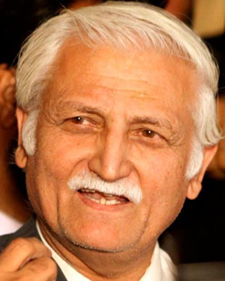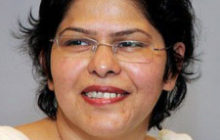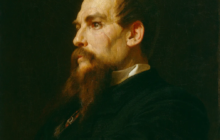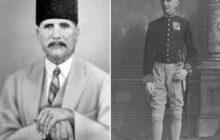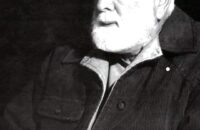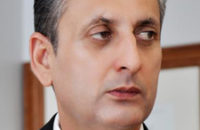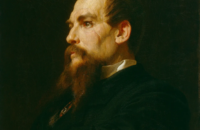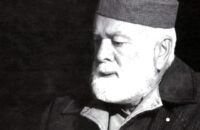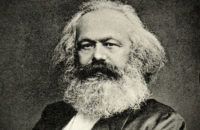Farhatullah Babar
By official account three – but by unofficial account, many more – were killed and injured in firing after Pakhtun Tahaffuz Movement (PTM) marchers were stopped at a military check post in North Waziristan on Sunday.
MNA Ali Wazir, arrested on charges of terrorism, has since been remanded in the custody of the Counter-Terrorism Department by an anti-terrorism court for eight days. Several other leaders of PTM, including MNA Mohsin Dawar, have been nominated in the First Information Report (FIR). Since then, the restive tribal district is under curfew and all telephone lines are suspended.
The use of military force for the first time against PTM in a tribal district must ring alarm bells. The Human Rights Commission of Pakistan (HRCP) has warned that this can further escalate tensions and even drive a permanent wedge between the people of tribal districts and the state. The need to handle its fallout with great wisdom and caution, therefore, cannot be over emphasised.
The ISPR has blamed “provocation and direct firing” on security forces. The check post was deliberately assaulted to secure “release of a facilitator of suspected terrorists,” it said. These are very serious and provocative charges indeed.
Unfortunately, there was no expression of remorse in the military’s hand out and not a word about holding an inquiry.
Matters were not helped when the federal information minister not only announced “action against the attackers” but also certified that the attackers wanted to “free the terrorists.” No evidence has since been presented.
The provincial government also failed and was silent as if nothing had happened on a territory that became part of it after the 25th Amendment. No official statement was issued and the two spokespersons for the government reportedly were not available for comment.
Except for the PPP Chairman Bilawal Bhutto Zardari, who condemned the incident and refused to believe that elected representatives and unarmed people had violently attacked a military check post, political parties also did not react strongly.
Expressing “sorrow” and describing the incident as “unfortunate,” the response of most parties was rather muted. Shehbaz Sharif cautioned against “politicisation.” Demanding a “comprehensive report” to the parliament, he refrained from demanding investigations.
Other accounts of the showdown, conflicting with the official account, were ignored by parties and the media. No notice was taken of the reports that the residents of Macha Madakhel, a remote village near the Afghan border, had staged a sit-in against humiliating search operations and that PTM workers were on their way there to show solidarity. Reports of a heated altercation at the check post, resulting in the incident, were also ignored.
No one paused to think that official versions are not too readily believed. The PTM was born when it refused to accept the official narrative of the killing of Naqeebullah Mehsud last year. Many one-sided official narratives in the past actually turned out to be horror stories. Recall the long-forgotten incident in Tando Bahawal, in which nine poor villagers were killed in cold blood to grab their land.
The prime minister actually congratulated security institutions after a patently false briefing that those killed were RAW agents with Indian-made weapons. However, when the truth became known, heroes became villains and villains became heroes and an army major was sent to the gallows.
It was wrong to hurriedly issue a one-sided official version of the Miramshah incident without the promise of an impartial inquiry.
It is not realised that truth has a cathartic value and a genuinely free media helps bring out the truth. But this door is also shut to the PTM. It is taboo for the national media to report their version of events. Whether their protests take place outside the national press clubs or condolence references for Arman Loni are held or public meetings organised and statements issued – the media is not allowed to cover them.
I participated in a Miramshah public meeting last month. A precariously erected make-shift podium, antiquated sound system and a dangerous disregard for security at the venue around a local market did not deter the tens of thousands of youth from yelling their anger and frustration. Not a single TV channel and newspaper reported it.
Journalists choosing to self-censor in a country declared most dangerous for them is not surprising. But censoring PTM, denying it expression and completely strangulating it is unprecedented and counterproductive.
“While vile propaganda against our movement is reported as news, the security establishment has ensured that almost nothing is reported about our movement in the mainstream Pakistani newspapers and television networks,” Manzoor Pashteen wrote in an article in The New York Times in February this year.
PTM’s demands are neither extraordinary nor beyond the constitutional ambit. It has been demanding an end to the bloodshed, probe in extra judicial killings, open trial of hundreds locked up in secret horror chambers, an end to humiliating body searches at checkpoints and demining of tribal regions. It also calls for a truth commission and demands to know who is supporting the former militants who have mysteriously resurfaced, and kill their supporters in targeted attacks.
“A military spokesman declared these Taliban fighters to be members of a peace committee and praised them for fighting terrorism and doing their part for ‘stabilization,’” Pashteen wrote in the same article and asked why?
To be fair, the security establishment has occasionally admitted, grudgingly or otherwise, that some of the grievances of the PTM are not misplaced.
But the military’s response has been wavering and confused. It sometimes links the PTM to foreign-inspired hybrid war against Pakistan, and sometimes woos its leaders. One day MNA Mohsin Dawar’s private constitutional bill to increase parliamentary seats of tribal people is readily embraced by the state, and the next day he is painted treasonous.
One day the military spokesperson warns them that their “time is up,” but the very next day the army chief sings a reconciliatory song. One day, a Senate Committee invites them for talks and the next day they are abused, threatened and reviled. These are signs of nervousness born out of a sense of guilt, of fear of truth – not of an honest resolve.
Instead of labeling them as tools in the 5th generation war against the country, the PTM should be engaged in a constructive dialogue aimed at healing, at reconciliation. Someday the truth has to be faced. Let it begin by finding out the truth behind the incident on Sunday through an open and transparent judicial probe.
The writer is a former senator
The Friday Times

